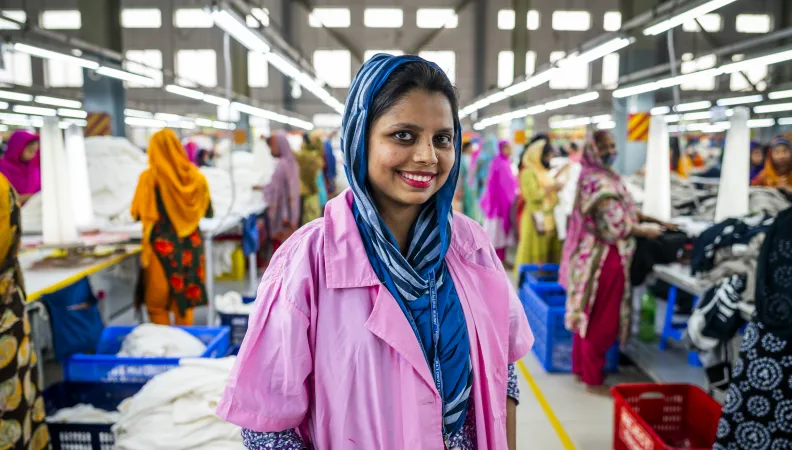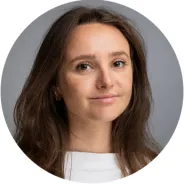Share the page
Proparco, an institution committed to gender equality
Published on

To mark International Women's Rights Day on 8 March 2024, Barbara Kong and Manon Rajot – in charge of impact and gender equality missions, respectively, at Proparco – explain how the Agence Française de Développement's private sector arm is working to promote gender equality.
What are the aims of Proparco's gender equality strategy?
Proparco's pro-gender equality action is part of France’s feminist diplomatic strategy designed by the French Ministry for Europe and Foreign Affairs (MEAE).
- Impact officer

The aim of this strategy is to ensure that the fight against gender inequality is mainstreamed into all areas of France's international action. Gender equality is a priority for AFD Group, which wishes to make an ambitious contribution to achieving the Sustainable Development Goal focused on achieving gender equality and empowering all women and girls (SDG5).
Under Proparco’s strategy, one of the three pillars of our action is the reduction of inequalities, including gender inequalities.
- Gender officer

Between 2023-2025, we aim to set aside USD 1.9 billion for projects that help reduce gender inequalities based on the criteria of the 2X Challenge. This objective is two-times greater than it was over the past five years. In 2023, we managed to qualify 31 projects for the 2X Challenge for a total amount of €675 million. Nearly 44% of these projects are in Africa, but we have also funded projects in Asia and Latin America.
How does Proparco's gender strategy fit into the Development Finance Institution (DFI) ecosystem?
B.K: Since 2018, Proparco has been committed to tackling gender inequality as a founding member of the 2X Challenge alongside six other G7 DFIs. This initiative aims to get the private sector to contribute to the development of women as entrepreneurs, business leaders and employees, and ensure they have equitable access to goods and services. Thanks to this initiative, over USD 25 billion in financing specifically designed to reduce gender inequalities has been deployed by DFIs since 2018, including more than €1.5 billion by Proparco.
M.R: There have been several developments in this initiative. The first "Challenge", which took place between 2018 and 2020, devised the initial criteria for analysing gender-related issues in the private sector. Between 2021 and 2022, the criteria were readjusted with a new focus on intent and the introduction of a signed Memorandum of Understanding with our clients, demonstrating their willingness to generate positive gender-related impacts.
The 2X Challenge has gradually become the benchmark methodological framework across the private sector as regards gender equality and it is being increasingly applied by all DFIs. 2X Challenge criteria have therefore become our strategic gender indicator and are systematically used in projects designed to enhance gender equality.
More specifically, what is Proparco doing to reduce gender inequality?
B.K: Three levers have been identified by Proparco to reduce gender inequalities in the private sector. The first involves financing companies that market products and services targeting women's specific needs. The second is to support businesses that promote equitable access to quality jobs for women. The third and final lever consists in promoting women's access to capital, in particular by committing to female enterprise by granting dedicated credit facilities to microfinance institutions (MFIs) targeting VSEs, SMEs and businesses run by women.
In addition to "2X" methodology, Proparco has developed a gender-based risk approach to preventing inequalities. In 2023, we developed an approach dedicated to preventing gender-based violence, which aims to improve standards and practices for assessing, preventing, monitoring, reporting and managing GBV risks in our financing and investment projects.
M.R: We have also developed a gender technical assistance service to support clients in this domain. These technical support facilities comprise an assessment of in-house practices and developing a gender action plan with the client, which is then implemented with the help of experts.
This year, Proparco helped finance Dakar BRT, the first 100% electric bus rapid transit system in sub-Saharan Africa. A high gender component was factored into the project, with a twofold objective: improving daily access for 125,000 women to transport, with satisfactory safety conditions for users, and promoting female employment in a predominantly male transport sector. As part of this project, our client will benefit from our technical support offering on handling gender-based violence (GBV).
